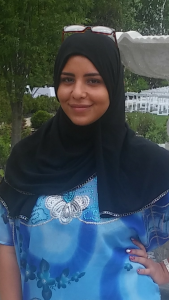Now, more than ever, is a critical time for developmental psychologists and the public at large to understand the state of immigration in the United States. The number of immigrants in the U.S. has grown considerably in just the last 5 years, with there being around 39.9 million immigrants in the U.S. in 2013 (APA, 2013) and around 43.3 million in 2017 (CAP Immigration Team, 2017). Many of these immigrants hail from Mexico, Latin America, Asia, and the Caribbean, and come with varying levels of education, skills, and language ability. And yet despite such a wide array of backgrounds and types of people immigrating into the U.S., immigrant populations as a whole are often painted in a negative light (APA, 2013). Attitudes towards immigrants today are especially controversial, with the current president of the United States, Donald Trump, publicly describing immigrants as infesting the U.S. and specifically targeting Mexican immigrants as being rapists (Simon, 2018; Reilly, 2016). Both the sheer number of immigrants arriving in the U.S. and the widespread prejudices against them are reasons why developmental psychologists and the general public should be concerned with how to help immigrants experience healthy development throughout their life.
People can understand how being discriminated against might hurts one’s feelings, but it is also important to understand how it affects one developmentally. People also might ask—what areas of development are impacted? Or even, what are the areas of development to begin with? According to García-Coll et al., areas of development for minorities—including immigrants—include environments like schools, community gathering spaces, and families. It is important to note, however, that areas of development do not only include physical places or things—they also include things like how an individual copes with racism, their temperament, and their ability to engage healthily in social situations and with their emotions (García Coll et al., 1996). With these areas in mind, it is easier to understand how discrimination can have adverse affects on an immigrant’s development. For example, several studies show that being bullied or discriminated against by peers is linked with more difficulty adjusting to school and lower levels of self-esteem in immigrants (Walter van Zalk & Kerr, 2014). This means they could exhibit poorer school performance, and having lower-self esteem could potentially result in inabilities to engage healthily in social situations or an inability to cope with emotions in a safe, productive manner. Regardless of what area is being impacted, it is crucial for people to be aware of how deeply discrimination can affect healthy development in immigrants.
With an understanding of how healthy development can be impeded by negative attitudes towards immigrants, it is then crucial to understand how to reduce such attitudes and discrimination. It is of course not up to developmental psychologists, unfortunately, to implement immigration policies, but they can conduct research aimed towards decreasing negative attitudes against immigrants. For example, studies have found that friendships between immigrant and non-immigrant teenage students are related to an increased level of tolerance and a decreased level of prejudice among those students (Walter van Zalk & Kerr, 2014). García Coll et al. also suggest that bilingual education could help immigrant children in terms of school performance and reducing language barriers within families (García Coll et al., 1996).
It may take a long time before discrimination against immigrants is eradicated, especially considering today’s political climate. But continued research by developmental psychologists regarding understanding and assisting with immigrant’s development, and the fellow understanding of the general public, can certainly help society move in the right direction.
References:
APA Presidential Task Force on Immigration (2013). Crossroads: The psychology of immigration in the new century. Journal of Latino/a Psychology, 1, 133-148.
CAP Immigration Team & Nicholson, Michael D. (2017, April 20). The facts on immigration today: 2017 edition. Center for American Progress. Retrieved from
García Coll, C., Lamberty, G., Jenkins, R., Mcadoo, H.P., Crnic, K., Wasik, B. H. & Vázquez García, H. (1996). An integrative model for the study of developmental competencies in minority children. Child Development, 67, 1891-1914
Reilly, Katie. (August 31, 2016). Here are all the times Donald Trump insulted Mexico. Time Magazine. Retrieved from http://time.com/4473972/donald-trump-mexico-meeting-insult/#
Simon, Abigail. (2018, June 19). People are angry President Trump used this word to describe immigrants. Time Magazine. Retrieved from http://time.com/5316087/donald-trump-immigration-infest/
Walter van Zalk, Maarten Herman & Kerr, Margaret. (2014). Developmental trajectories of prejudice and tolerance toward immigrants from early to late adolescence. Youth Adolescence, 43, 1658-1671.








Recent Comments